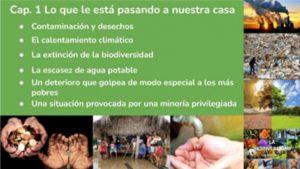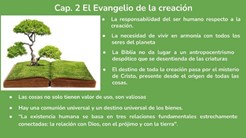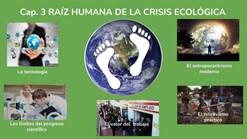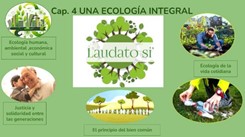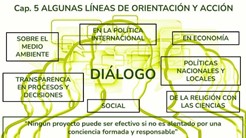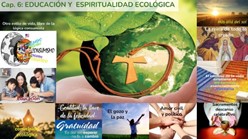PROVINCE OF SPAIN – 3rd Shared Mission Formation Session for Brothers, Associates and Collaborators
- By: Dionigi Taffarello
- On:
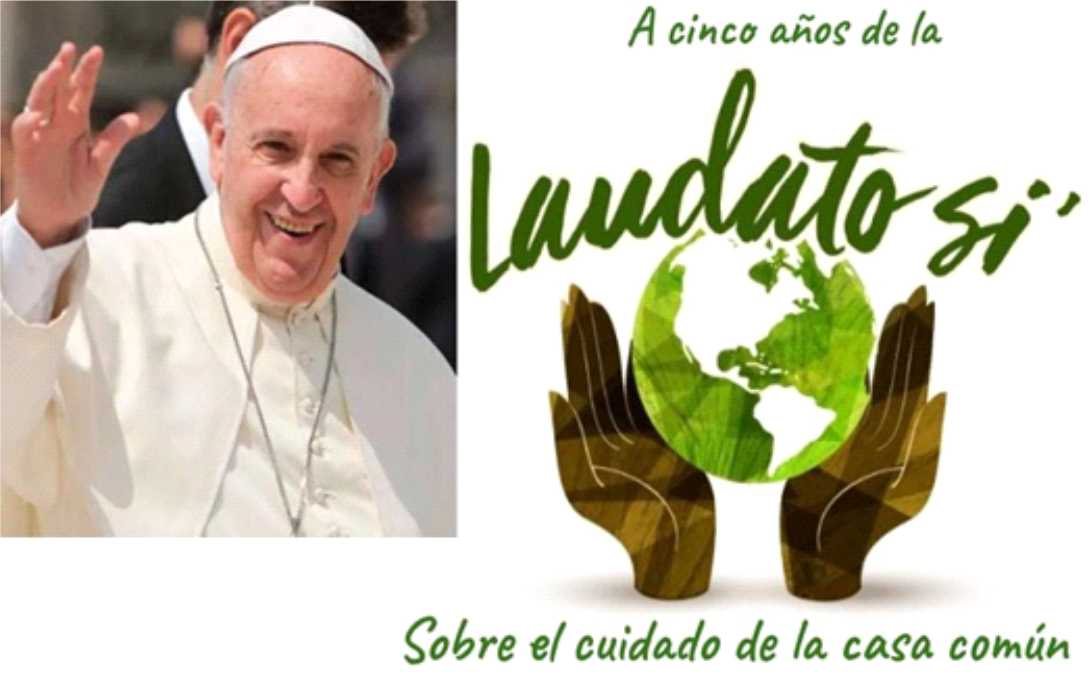
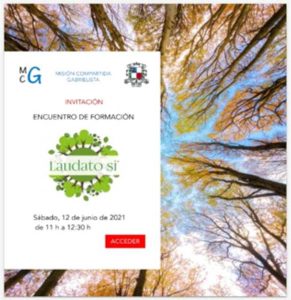 On Saturday, 12 June, the third online meeting of Formation for Shared Mission took place. On this occasion, in response to the request expressed at the previous meeting, all the members were invited to the same link: Brothers, associates and collaborators from all over the Province.
On Saturday, 12 June, the third online meeting of Formation for Shared Mission took place. On this occasion, in response to the request expressed at the previous meeting, all the members were invited to the same link: Brothers, associates and collaborators from all over the Province.
Given that this year marks the fifth anniversary of Laudato si’ on care for our common home, the GCM Formation Team felt that this would be an interesting theme for all of us, as individuals and educators, for our final meeting.
It is certainly impossible to deal with a subject like this in a single session, but at the very least we are trying to give a condensed presentation of its content and to raise awareness of the urgency of the challenge we face in “caring for our common home”. Because, as Jaume Flaquer, Head of the Theological Area of Christianity and Justice, says in his article “Coronavirus: a single humanity, a common vulnerability”, the pandemic situation, which we are still experiencing, has opened our eyes to a reality that we thought was far away. A reality that has highlighted the deterioration of nature and how this affects the poorest in particular.
Pope Francis tells us that an integral conversion is necessary, a commitment to another way of life. And that this is possible because human beings are capable of overcoming and regenerating themselves, beyond all the mental and social conditioning imposed on them.
And especially Christians, because this conversion is born in us from the convictions of our faith.
What are the keys to change proposed by “Laudato Si'”?
- Be grateful and practice gratuitousness: The Pope asks every Christian to recognise the world (creation) “as a gift received from the Father’s love”, something that implies “attitudes of renunciation and generous gestures”.
- Educate in different areas: at school, in the media, in catechesis and, above all, in the
- Banish compulsive consumerism: human beings accept lifestyles imposed by planning and mass-produced products and act with the feeling that this is the right thing to do. We believe we are free because we have a supposed freedom to consume, when those who have this freedom are a minority who hold economic and financial
- Forgetting selfishness: “The emptier a person’s heart is, the more he or she needs objects to buy, possess and consume”. It is necessary to “reach out to others” and overcome “individualism”.
- Inner conversion: It is necessary “to be converted, to really meet Jesus Christ and to start a new life. The Christian must live his vocation by admiring the beauty of God’s work and protecting it. To have “a healthy relationship with creation” as part of the conversion of the whole person. Change from within.
After the presentation of the contents of the encyclical, we worked in groups in different online rooms and finally we shared the different reflections in the main room, where we discussed the need to dedicate more time to the study of the encyclical given its richness and depth. For all, believers and non-believers, the encyclical is a guide to achieve the much needed integral conversion.
With the hope that next year we will be able to return to a longed-for normality that will allow us to meet in person, we wish each other a good and well-deserved summer break.
The Formation Team for the MCG – Province of Spain
